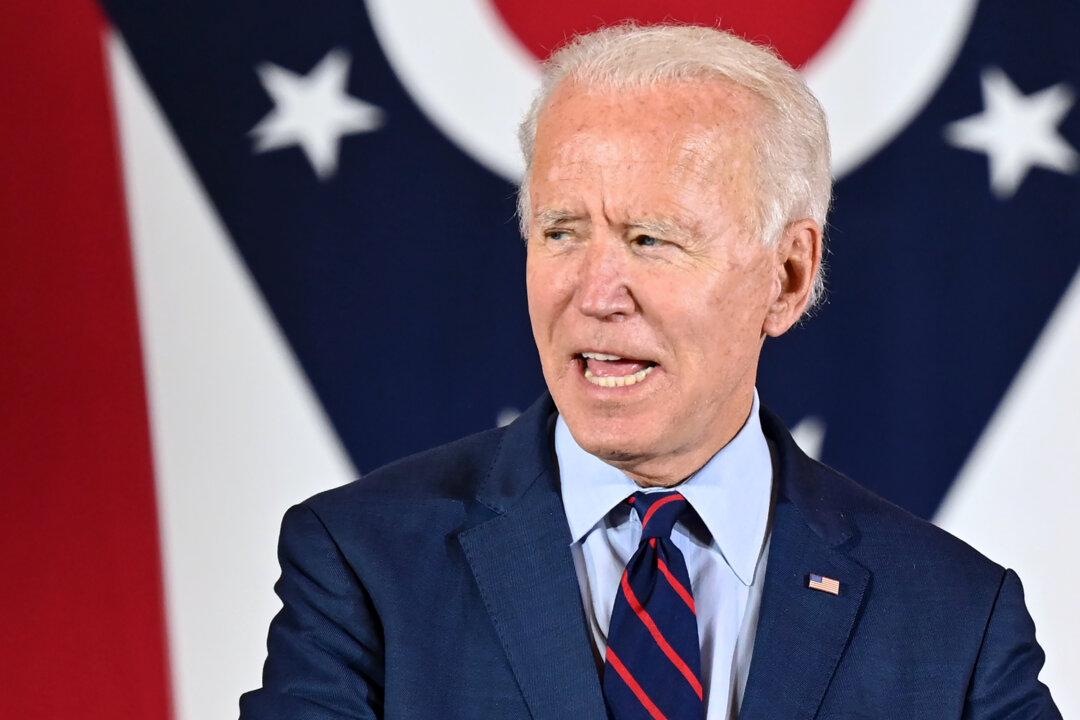Democratic presidential nominee Joe Biden said Monday he’s “not a fan” of proposals to add seats to the Supreme Court, also known as court-packing.
“I’ve already spoken on—I’m not a fan of court-packing, but I don’t want to get off on that whole issue,” Biden told WKRC-TV while campaigning in Ohio.





